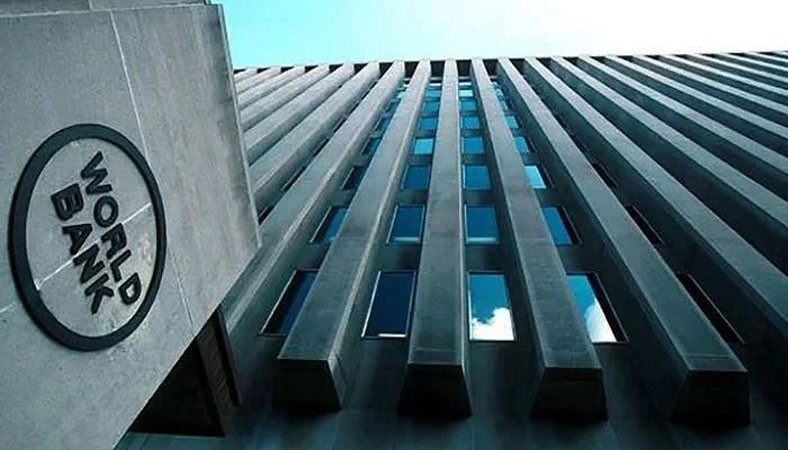 The World Bank (WB) on Tuesday projected Pakistan’s economy to grow by only 1.8% in the current fiscal year ending June 2024, stressing the need for structural reforms, as inflationary burdens have sent nearly 40% of the population below the poverty line.
The World Bank (WB) on Tuesday projected Pakistan’s economy to grow by only 1.8% in the current fiscal year ending June 2024, stressing the need for structural reforms, as inflationary burdens have sent nearly 40% of the population below the poverty line.
According to World Bank’s latest “Pakistan Development Update: Fiscal Impact of Federal State-Owned Enterprises,” the modest economic recovery in recent months is attributed to stringent monetary and fiscal policies, ongoing import control measures to safeguard limited foreign reserves, and subdued economic activity amidst low confidence levels.
“A clearly articulated, ambitious, and credible economic reform agenda is required to reduce uncertainty and restore confidence. Risks remain very high, and key policy constraints to sustainable economic growth remain unaddressed. Policy buffers to manage any shocks remain depleted, with high levels of debt and tightly constrained foreign exchange reserves,” the WB report said.
The report said under the current policy settings, and unless a major structural reform programme was durably implemented, growth was expected to remain muted amid continued very low investment, persistent external imbalances (likely necessitating continued import and capital management measures), distortionary fiscal policies, and a large state presence in the economy.
The multilateral donor said Pakistan’s economy stabilised with improved economic management and new external inflows, while a sustained recovery, with improved growth prospects, and poverty reduction would remain a challenge.
“Without major reforms, no significant poverty reduction is expected over the medium term. Financial sector stress, looming policy uncertainty with potential policy slippages, climate change-induced shocks and natural disasters, and external headwinds all pose very high risks to the outlook,” the IFI’s report said.
The World Bank also warned that Pakistan would continue to face liquidity issues in the medium term, due to trade deficit and limited access to external financing, unless authorities take “major and sustained economic reforms.”
“Pakistan is expected to continue facing foreign exchange liquidity issues due to the persistent trade deficit and limited access to external financing. Even with the recent successful completion of the IMF-SBA and continued rollovers, reserves are projected to remain low. Import management measures are expected to continue disrupting domestic supply chains, while tight macroeconomic policies will mute aggregate consumption and investment,” the report said.
It said the fiscal deficit was projected to increase to 8.0% of GDP in FY24 due to higher interest payments. “It will then gradually decline over the medium term as interest payments decrease and fiscal consolidation measures take hold,” the report said. It added that the primary deficit was expected to decline to 0.1% of GDP in FY24, reflecting the recent fiscal consolidation measures.
“It is expected to grow to 0.3 percent of GDP in FY25-26. A deeper fiscal consolidation over the medium term will be necessary to restore fiscal and debt sustainability,” the World Bank said.